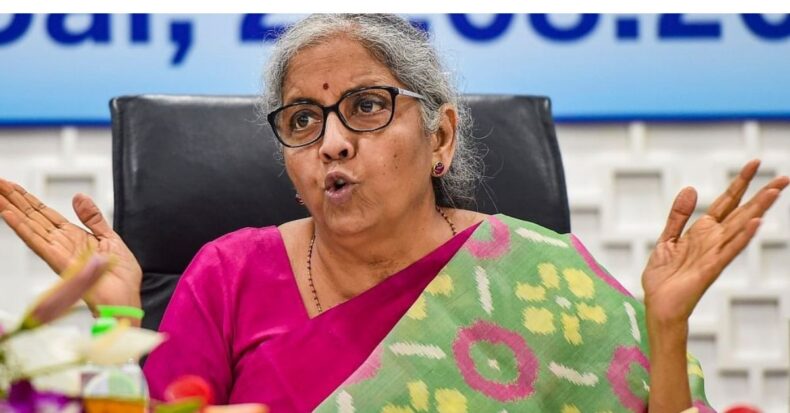The foundation laid down by PM Modi in late February 2021 came to light on Monday when Finance Minister of India Nirmala Sitharaman unveiled its intention to monetise about Rs. 6 trillion worth of assists held it and the Public Sector Units (PSUs).
Later on, Tuesday, Congress leader Rahul Gandhi questioned the move of the government to monetise its assets across critical sectors.
His allegations included the government gave a slogan that “nothing happened in 70 years”. But today, the same government is selling the assets created in the last 70 years.
He alleged that the Modi Government’s privatisation plan aimed to create monopolies in critical sectors, which will kill jobs as ruling party leaders claimed how the previous UPA government did monetisation and privatisation of national assets.
To the same, he added, “We are not against privatisation, but our privatisation plan had a logic. We didn’t privatise strategic industries, and we consider Railways as strategic industry because it transports lakhs and crores of people and also employs lots of people.”
“Does Rahul Understands Monetisation?” Nirmala Sitharaman defends National Monetisation Policy

Congress leader Rahul Gandhi’s claim that the Modi government is selling the crown jewel assets built by his party in 70 years through the National Monetisation Pipeline (NMP).
On Wednesday, Union Finance Minister Nirmala Sitharaman said that the government would not give away its ownership of assets.
Addressing the media in Mumbai on Wednesday, Sitharaman said that under the monetisation, the asset given to the private sector would be handed back to the government after a tenure.
“We are not selling off, and there will be a strict handing back,” she said.
She criticised and strongly opposed the Congress and its leader Rahul Gandhi for misleading and telling untruths to the people by accusing the government of selling the country assets.
“I wish the Opposition questions with some homework done. Who monetised the Mumbai Pune corridor,” she asked? “Was it not by the Congress Party headed by Sonia Gandhi and ₹ 8000-odd crore was raised by that?” she said.
Giving the example of opposition citing monetisation process undertaken by Congress-led UPA government, she said about New Delhi Railway Station, “Who called the RFP on it? Is it owned by ‘Jijaji’ [Rahul Gandhi’s brother-in-law Robert Vadra] Now?”
She asked Rahul Gandhi if he is against monetisation, then why not tear down the RFP for monetising New Delhi Railway Station.
“The Congress Party can, now and then, come up saying you are selling off the country,” she said.
She added That Congress is very good at doing this and made a lot of kickback; the Congress was telling people to believe something “which is not true” and misleading them, she stated.
“He [Rahul Gandhi] said we sold everything that was built in 70 years … 70 years…what happened during the Commonwealth Games? Within one Commonwealth Games, they finished off all which can be creamed out into the accounts of their cronies.
That is their business, not of the Government of Prime Minister Modi,” she declared.
In the monetisation pipeline that was announced by her two days ago, there would be no change of ownership.
“It [assets] will remain with Government of India. They are brownfield assets, which are almost completed but are underutilised,” she added.
CM Mamta Banerjee: BJP or Modi don’t own country assets

On Wednesday, Chief Minister Mamta Banerjee slammed the Centre over its NVM Policy, claiming that it is a play to sell national assets belonging to the Indian People and not to Prime Minister Modi or the BJP.
She termed NMP Policy as a “shocking and unfortunate decision”, and she alleged that the Centre is raising money by selling those assets. During the election, the BJP will use the same cash raised against Opposition Parties.
She said, “the BJP should be ashamed, and No one has given BJP the right to sell nation’s assets.” She added the entire nation would stand together to oppose this “anti-people” decision.
“India’s asset monetisation sounds good-a plan… But still have huge risk”: Kaushik Basu, an Indian Economist.

Kaushik Basu, an economist from India and Professor at Cornell University, compared the National Monetisation Pipeline (NMP) with Goods and Services Tax (GST) and said it is good. Still, risks too are involved in its implementation.
The economist pointed out that significant assets like airports, highways, railways, which are languishing, would be used well enough through National Monetisation Pipeline.
In an exclusive interview with ANI, Basu said, “National Monetisation Pipeline is barely 24 hours old.
I do have a view, and the view is that there is a plus side to it, but there is a risk and a considerable risk. I think this is a bit like GST.”
The economist’s comments came after Union Finance Minister Nirmala Sitharaman launched the National Monetisation Pipeline, including the Centre’s four-year plan to monetise its brownfield infrastructure assets.
The government has planned a Rs 6 lakh crore pipeline of assets that can be monetised, including a range of assets put on the block for private sector participation, over four years, from Financial Year 2022 to Financial Year 2025.
Replying to a question on the intent of the policy or the purpose, Basu said that the move to monetise its brownfield infrastructure assets is desirable, but if done wrong, it can backfire.












